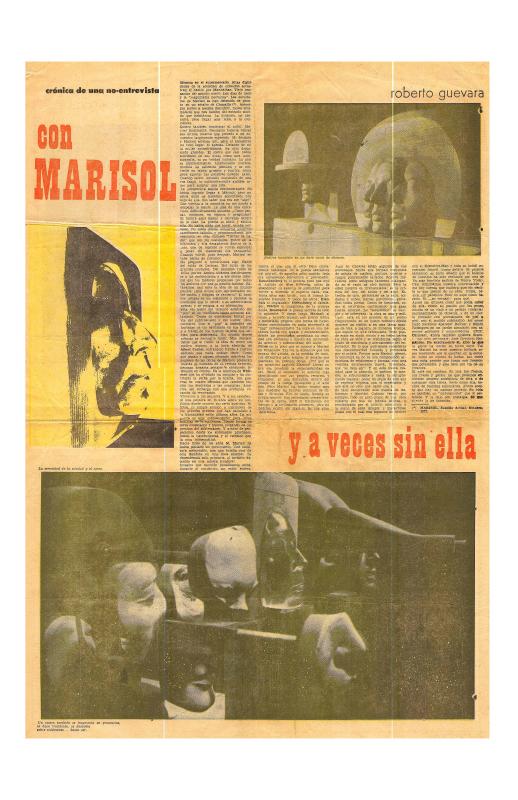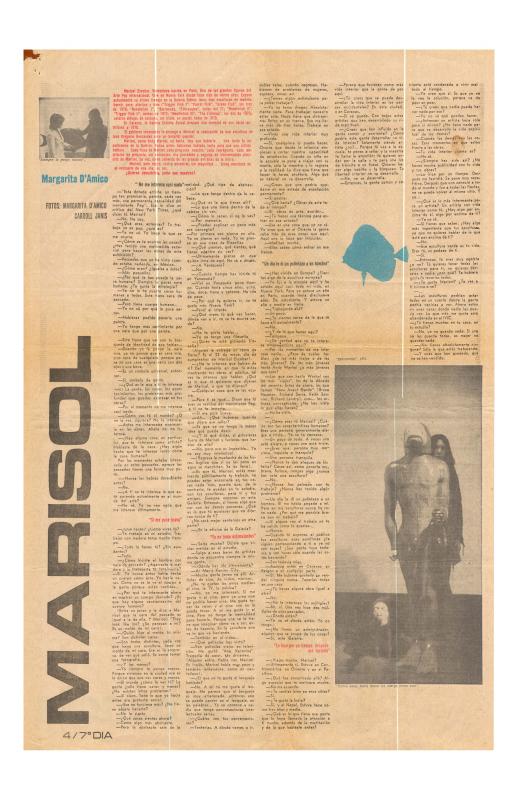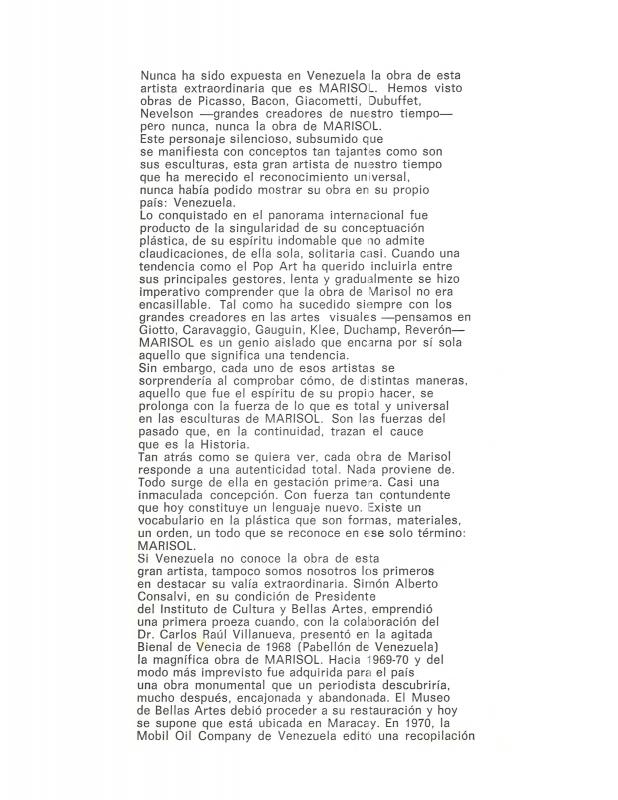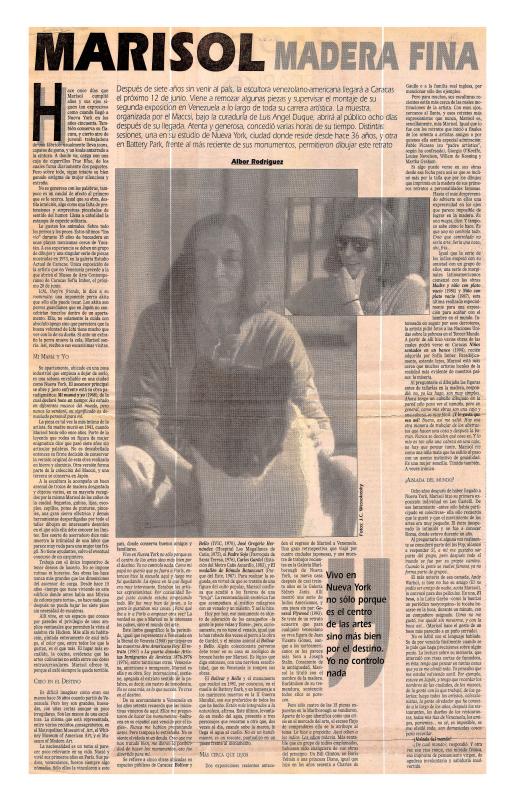In this critical review, Roberto Guevara (1932–98) discusses the work of the Venezuelan-North American sculptor Marisol [Escobar], who was born in Paris in 1930. Guevara pays particular attention to the iconographic nature of Marisol’s work which, in his opinion, is its key feature and represents her great contribution to contemporary art. It also fills a void that has long been apparent in Latin American art after having been the main subject of works produced in previous centuries. The artist treats iconography in an unconventional and irreverent way, delving beneath its representational surface to give it much deeper meaning by including social criticism and other sociological and psychological commentary. In his essay, Guevara complains that, in 1984, Venezuela had still not had a retrospective exhibition of her work, despite the fact that she was a world renowned artist. The issue of Marisol’s homeland and “true” nationality has always been controversial. But this does not prevent Guevara from calling for a retrospective exhibition—once and for all—in what he considers to be her mother country. Strangely enough, that exhibition was finally organized in 1995, but in Japan, so Guevara never saw his wish fulfilled.
There is another essay by the critic and curator Roberto Guevara about the famous artist from the 1960s, “Con Marisol y a veces sin ella. Crónica de una no entrevista” [doc. no. 1163318]. See also the article by Margarita D’Amico “Marisol: un acuario para soñar” [doc. no. 1163605]; the article by Akiko Hyuga “Marisol in the ‘60s ? Social Satire and Search for Identity” [doc. no. 1163366]; the essay by Águeda Hernández “Sin Título [...Nunca ha sido expuesta en Venezuela...]” [doc. no. 1163350]; and the essay by the Venezuelan journalist Albor Rodríguez about the sculptor, “Marisol madera fina” [doc. no. 1163525].





